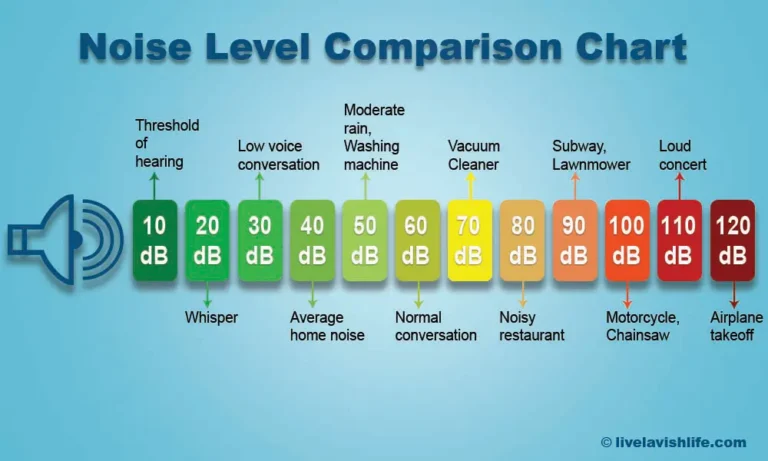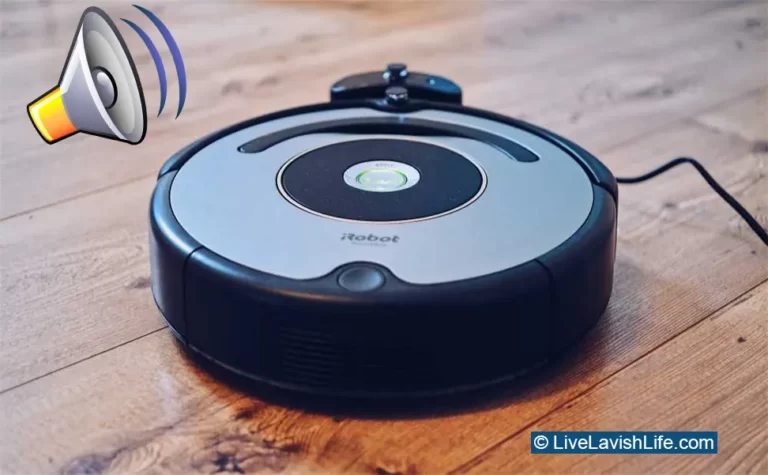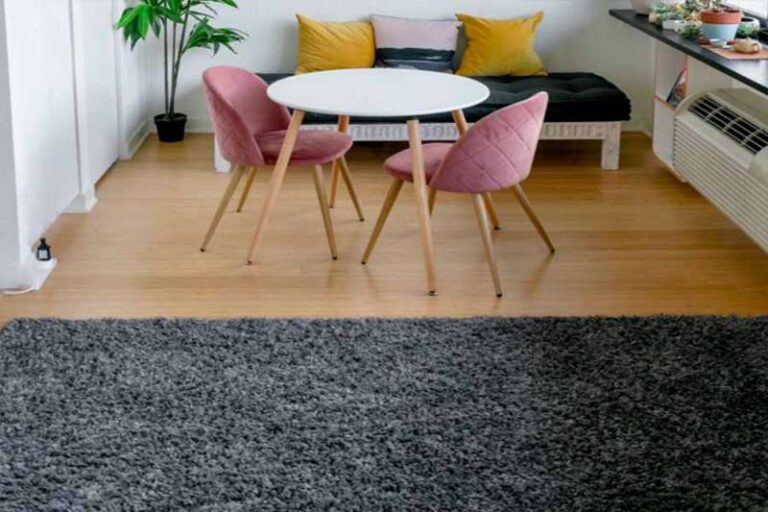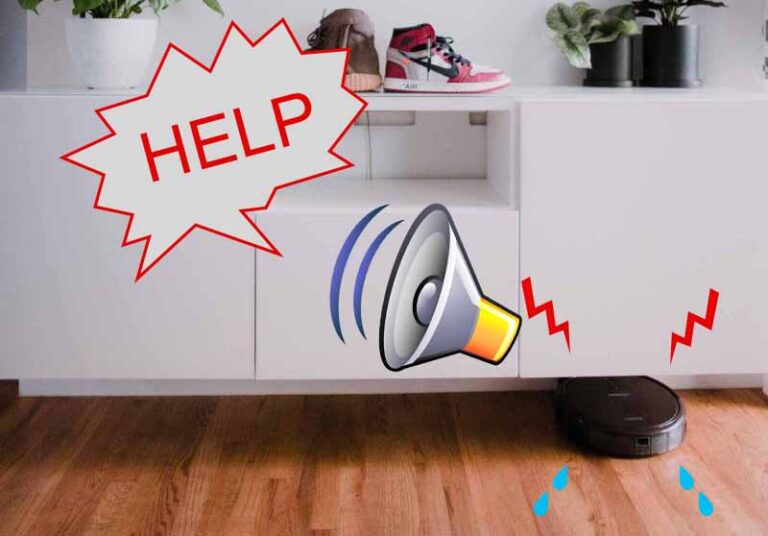Roomba, a robot vacuum cleaner, is an autonomous cleaning device that makes your life easy and saves you time and effort by doing the cleaning chores for you. But you might be wondering, how loud is a Roomba? After all, what ease would a machine give if its noise doesn’t let you sleep or watch tv?
Noise level is measured in decibels and denoted as dB. According to the Centers for Disease Control and Prevention, a national public health agency of the United States, a sound level of up to 85 dB is considered safe for human ears if not exposed for longer.
The noise level can be measured through this NIOSH Sound Level Meter app developed by the National Institute of Occupational Security and Health.
See the following table for the robot vacuum noise comparison chart:

Table of Contents
ToggleHow Loud Is A Roomba?

After getting familiar with the noise level standards, now let’s talk about how loud is a Roomba.
The Roomba noise level ranges from 54 dB to 70 dB. This value is way lower than other conventional upright vacuum cleaners that reach a sound level of up to 80 dB. The following table compares the noise levels of different Roomba models while running on hard floors, on carpets, and while self-emptying.
| Roomba Model | Noise Level (dB) on Hardwood floor | Noise Level (dB) on Carpets | Noise Level (dB) while self emptying dirt bin |
|---|---|---|---|
| 400 series | 76 | 72 | N/A |
| 500 series | 71 | 68 | N/A |
| 600 series | 71 | 67 | N/A |
| 700 series | 70 | 66 | N/A |
| 800 series | 71 | 66 | N/A |
| 900 series | 70 | 67 | N/A |
| i4 | 62 | 61 | N/A |
| i7+ | 53 | 51 | 74 |
| j7+ | 55 | 48 | 76 |
| s9+ | 54 | 50 | 70 |
So, is a Roomba loud? The Roomba i7+ and s9+ are the quietest models both on hard floors – vinyl planks, tile, marble, concrete – and carpets. S9+ is even quieter while self-emptying the dirt bin on the Homebase. This self-emptying process doesn’t take more than 2-3 minutes. So, it is not that much of a problem.
Not all Roombas are loud. Only the older models with obsolete technology make more noise. The newer models are more sophisticated and have advanced technology, so they are quieter.
Why Roomba Noise Level is High?
Now you might be wondering why my Roomba is making a loud noise. Its loudness depends on the following factors:
Roomba Model
Roomba noise level depends on its size and model. Older models, the 400 series, for example, are louder as compared to the latest models like the ‘s’ and ‘j’ series. The reason for this is obvious. As technology is evolving, machines and robots are becoming more sophisticated. They are becoming more powerful and better than their ancestors. The same is true for robot vacuums. Newer models are installed with more efficient parts that require less power and make less noise.
How Old Is Your Roomba?
Older robot vacuums will make more noise as compared to the newer ones. If your Roomba is ten years old, expect it to be louder. Robots deplete as they age. If the obsolete parts are not replaced, they will start to rattle and make noise while moving.
Type Of Surface

Another factor behind the loud noise is the surface it is cleaning on. A Roomba will be louder when cleaning on hard surfaces as compared to carpets and rugs that absorb some of the noise.
If your Roomba is cleaning in an empty room or near bare walls, expect it to be louder than normal. Empty rooms, cornered spaces, and bare walls make an echo that increases the noise level.
How Well Roomba Is Maintained?
The noise level of a Roomba also depends on how well it is maintained. A robot vacuum cleaner picks up dust, fluff, and pet hair that get stuck in its brush, bearings, and wheels. Clogged-up brush and wheels will definitely make your Roomba louder. To keep it quieter and live longer, you should clean it thoroughly at least once a week. This includes cleaning brush, bearings, wheels, filter, and dirt bin. Oiling or greasing the wheels once or twice a year will make it run smoothly with less noise.
So keeping your Roomba clean is essential. Because no matter how sophisticated and sealed pack your robot vacuum is, the grime that it picks will somehow find its way into your Roomba and will wreak havoc if not cleaned on time.
A Roomba not maintained well will not only become louder but its performance will also reduce and the battery charging time will increase.
Which Noise Requires Attention?

There are some situations where you should be concerned about Roomba noise level. Louder-than-usual or abnormal beeps and sounds should not be ignored as these are the indicators of something bad going on inside your Roomba that needs to be fixed immediately.
Some advanced Roombas alert you on the mobile application if they have any internal problems. But most of the time a Roomba will make different sounds to seek attention. Following are some abnormal noises, their meanings, and how to fix them:
I. Roomba Is Making Grinding Noise
If your Roomba is making a grinding noise, this means the brush is tangled with debris and hair and causing traction. You should stop the vacuum immediately and clean the brushes thoroughly. You should remove all the hair, debris, and fluff from the brush, its axles, brush bearings, and wheels as well.
If you ignore this grinding noise, the brush of your Roomba will wear out because of the friction and the battery will also get depleted quickly.
II. Roomba Is Making Clicking Noise
If your Roomba is making a clicking sound, it might be because of the wrong assembly of the extractors or the cleaning head.
One way to find out is by removing the extractors and running the vacuum. If the clicking noise is gone this means the root cause for that noise is extractors. Assemble the extractors according to the guidelines provided by iRobot.
III. Roomba Is Making Squeaky Noise
If your Roomba is making some annoying squeaky noise, there might be some debris or fluff trapped in the side brush. Clean it and your robot is good to go.
IV. Roomba Is Making Ticking Noise While Charging
Many users complain about Roomba, mostly 800 series, making a ticking noise while charging. There can be different reasons for this ticking noise.
- There might be an issue with the charging outlet.
- This ticking noise can also be caused by the dirt bin not being properly fitted.
- If the noise persists, there might be a problem with the battery or the Roomba itself. You should contact iRobot customer support as a final resort.
Is A Roomba Worth The Noise?
Despite generating some noise, the benefits of robot vacuum cleaners, including autonomous cleaning and advanced technologies like mapping and smart navigation, outweigh this inconvenience.
Ranging from 54 dB to 70 dB, Roomba noise level is in the same range as normal conversation. It is way lower than other conventional upright vacuum cleaners that are up to 80 dB louder. And there is always a way to make Roomba quieter.
If you are concerned about sleeping kids or watching TV during the cleaning sessions, you can schedule your Roomba to do the cleaning at a convenient time when a little noise is not an issue.
- How to Make a Homemade Pet Odor Remover for Carpet Cleaner Machines - July 5, 2025
- Best Vacuum Cleaner for Carpets - April 29, 2024
- How to Get Dried Paint Off Laminate Floor - February 3, 2024